Frodo Baggins, Lady Galadriel, and the Games of the Mighty
A classic image. Iconic. Frodo Baggins, Hobbit of the Shire, offering the ring of power to Galadriel, Elven Queen of Lothlórien.
Ralph Bakshi version:
Peter Jackson version:
Yet, as is often the case in JRR Tolkien’s writings, things are not quite what they appear. Allow me to bullet point the bites Mr. Baggins has had to take out of the crap sandwich served up to him by fate up to this point.
[Click on any of the image for larger versions.]
- Chased by Nazgûl from the shire and all across Arthedain
- Stabbed by King of the Nazgûl with a Morghul blade
- Nearly “fading” from material world due to #2
- Nearly beating up only remaining family member over touching the ring
- Stabbed with orc-spear in pitched life or death battle in the bowels of Moria
- Face to face with distilled force of evil of the First Age which destroys only magical ally
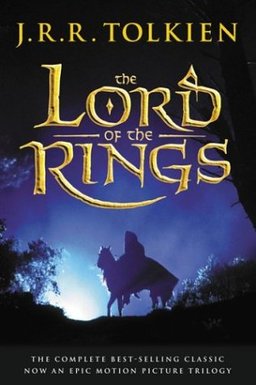 Pretty heavy dues. But this list is short an item. One other thing is that Frodo has gained, since arriving in Lothlórien, is a knowledge of Elvish history.
Pretty heavy dues. But this list is short an item. One other thing is that Frodo has gained, since arriving in Lothlórien, is a knowledge of Elvish history.
Fill your pipe and fix yourself a pint because yes, we’re going to go there.
So in the history of the world of The Lord of The Rings, in the lands of the west there are two tribes of elves. The shore elves (the Teleri) and the inland (the Noldor). The inland elves have a prince, Fëanor, who, in a fit of molten creative fervor, creates three magnificent artifacts called Silmarils. He has great pride in his accomplishment, and we all know what pride leads to.
In these early days Sauron is just a lackey, a minion of a much more powerful malevolent force- Melkor. Melkor, who despises the elves and having failed to destroy them through main force, hits upon a cunning plan. He destroys the only source of light in the world, which at this time are the two Trees of Valinor: Telperion (whose last blossom eventually becomes the moon), and Laurelin (whose last blossom eventually becomes the sun), murders the Noldorian king and steals the Silmarils.
Like I said, a powerful malevolent force. But Melkor doesn’t act alone. A giant spider-like creature named Ungoliant helps him pull this off. Melkor then steals the gems and travels from the lands of the west to Middle-Earth via shifting ice-bridge called the Helcaraxë.
Fëanor is on the warpath and he and his folk swear a vow to recover the stolen gems, and here we get our first mention of Galadriel. While Finarfin, Galadriel’s father and half-brother to Fëanor, urges against swearing such oaths and venturing from the lands of the gods, what goes through his daughter’s mind? From The Silmarillion:
But Galadriel, the only woman of the Noldor to stand that day tall and valiant among the contending princes, was eager to be gone. No oaths she swore, but the words of Fëanor concerning Middle-earth had kindled in her heart, for she yearned to see the wide unguarded lands and to rule there a realm of her own will.
Quite an introduction.
But even at the outset not all the Noldor are persuaded to go.
And of all the Noldor in Valinor, who were grown now to a great people, but one tithe refused to take the road: some for the love they bore to the Valar (and to Aulë not least) —
More on Aulë in a bit.
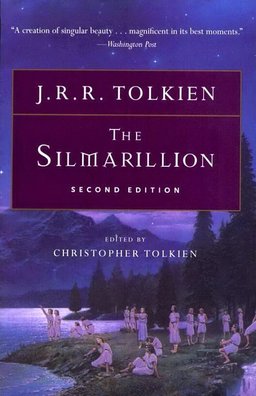 Oaths or not, the Noldor elves head to the coast where they ask the Teleri elves to give them some of their fancy ships so they can head Melkor off at the pass. The shore folk, having an equal pride in their boats as Fëanor does in his Silmarils, don’t agree to this. Fëanor, in a molten fervor of rage, takes the boats by force, thus killing the king of sea elves and several others.
Oaths or not, the Noldor elves head to the coast where they ask the Teleri elves to give them some of their fancy ships so they can head Melkor off at the pass. The shore folk, having an equal pride in their boats as Fëanor does in his Silmarils, don’t agree to this. Fëanor, in a molten fervor of rage, takes the boats by force, thus killing the king of sea elves and several others.
This is the first elf-on-elf killing in the history of the world (one could quibble that orcs are/were elves but of the many things I came here to do, quibbling is not one of them). A lot of important events precipitate from this kinslaying. The gods lay a doom on the Noldor (or perhaps simply inform them of the doom they have brought on themselves). Galadriel’s father, Finarfin, and a number of his followers decide not to go to Middle-Earth at all and return to the lands of the gods, and others of Fëanor’s half-brothers begin grumbling against what they’ve gotten themselves into.
Fëanor and his sons have the stolen ships, and upon crossing the sea Fëanor decides to burn them instead of send them back to pick up his half-brothers’ people. And those people, having already stained their hands with the blood of their own kind, and having turned their backs on the gods [the Valar], push forward on the only path left to them: going north through the grinding ice of the land bridge. And who is in that group? Galadriel, who has split from her father Finarfin in her eagerness:
The fire of their hearts was young, and led by Fingolfin and his sons, and by Finrod and Galadriel, they dared to pass into the bitterest North; and finding no other way they endured at last the terror of the Helcaraxe(…) and the cruel hills of ice…
and
Small love for Fëanor or his sons had those that marched at last behind him…”
So there is this entire elvish line under a curse, and there is the elvish feud against Melkor, and the split among the Noldor. The men and ents and dwarves get involved, and the fire and the foom and the killing, plus there are already elves in Middle-earth. Galadriel is not without activity during all this. When they get to Middle-earth, she splits off from her kin and takes a step toward the running of a realm. From The Simarillion:
Galadriel his sister went not with him [Finrod] to Nargothrond, for in Doriath dwelt Celeborn, kinsman of Thingol, and there was great love between them. Therefore she remained in the Hidden Kingdom and abode with Melian, and of her learned great lore and wisdom concerning Middle-Earth.
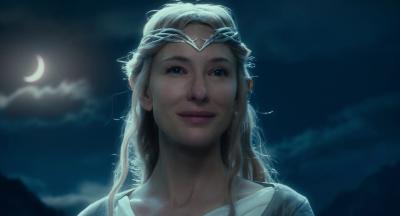 Basically, while most of the Noldor are fighting the good (or bad, depending) fight against Melkor, she’s ensconced herself in the house of the elven king of Middle-Earth (Thingol), in the city of Doriath with Celeborn and Melian (who is a Maia, like Gandalf, Saruman, and Sauron). Galadriel’s not quite the queen she wanted to be back in Valinor, but it’s a start!
Basically, while most of the Noldor are fighting the good (or bad, depending) fight against Melkor, she’s ensconced herself in the house of the elven king of Middle-Earth (Thingol), in the city of Doriath with Celeborn and Melian (who is a Maia, like Gandalf, Saruman, and Sauron). Galadriel’s not quite the queen she wanted to be back in Valinor, but it’s a start!
Queen Melian is no fool and pieces together some inconsistencies in what she’s heard regarding the Noldor. Inconsistencies that Galadriel, eager to gloss over that whole ship stealing thing and who killed who back in the undying west, covers with some clever lies of omission:
I believe not that the Noldor came forth as messengers of the Valar [the gods], as was said at first: not though they came in the very hour of our need. For they speak never of the Valar, nor have their high lords brought any message to Thingol [who is, it should be noted, great-uncle to Galadriel], whether from Manwë (..), or Ulmo, or even from Olwë [the king of the Teleri elves, murdered by Fëanor in the fight for the ships] the King’s brother, and his own folk that went over the sea. For what cause, Galadriel, were the high people of the Noldor driven forth as exiles from Aman? Or what evil lies on the sons of Fëanor that they are so haughty and so fell? Do I not strike near the truth?
“Near,” said Galadriel; “save that we were not driven forth, but came of our own will, and against that of the Valar. And through great peril and in the despite of the Valar for this purpose we came: to take vengeance upon Melkor and regain what he stole.”
Then Galadriel spoke to Melian of the Silmarils, and of the slaying of King Finwë [Fëanor’s father] (..) at Formenos; but still she had no word of the Oath, nor of the Kinslaying, nor of the burning of the ships at Losgar. But Melian said: “Now much you tell me, and yet more I perceive. A darkness you would cast over the long road from Tirion, but I see evil there, which Thingol should learn for his guidance.”
“Maybe,” said Galadriel; “‘but not of me.”
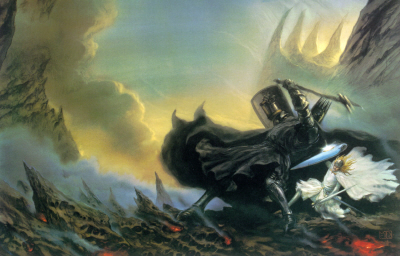
Way to come clean, there.
Time passes, Melkor/Morgoth is finally defeated, Ungoliant devours herself, and of the three Silmarils, one is lost in the depths of the sea, one in the fires of the earth, and one becomes a star in the heavens [called Gil-Estel by most people of Middle-Earth, but more on that later]. The world is altered by the upheavals of the Valar fighting Melkor, and with the Silmarils forever out of reach, most of the Noldor not killed during all the upheavals and wars, return to the undying west.
Yet not all the (Noldor) were willing to forsake the Hither Lands where they had long suffered and long dwelt; and some lingered many an age in Middle-earth. Among those were Cirdan the Shipwright, and Celeborn of Doriath, with Galadriel his wife, who alone remained of those who led the Noldor to exile in Beleriand.
Galadriel: Last Noldor Chieftain Standing. At least the last of those that turned away from Valinor (three times!).
That’s all ancient history, though, right? Surely all that stuff in the later days of the First Age, surely that doesn’t matter very much by Frodo’s time, right? That’s where you would be wrong.
While Melkor/Morgoth is no more, his Lieutenant Sauron is never found, and with a gap in the leadership, Sauron becomes the Next Big Thing. And speaking of lies of omission, Galadriel and Gandalf and pretty much everyone else is a little too quiet about the real history of the rings of power, and the part the elves and Galadriel play in them. Sometime into the second Age, Sauron, hiding himself in a new guise, goes among the elves of Middle-Earth (from Lost Tales):
It was in Eregion that the counsels of Sauron were most gladly received, for in that land the Noldor desired ever to increase the skill and subtlety of their works. Moreover they were not at peace in their hearts, since they had refused to return into the West, and they desired both to stay in Middle-earth, which indeed they loved, and yet to enjoy the bliss of those that had departed. Therefore they harkened to Sauron, and they learned of him many things, for his knowledge was great. In those days the smiths of Os-in-edhil surpassed all that they had contrived before; and they took thought, and they made Rings of Power. But Sauron guided their labors, and he was aware of all that they did; for his desire was to set a bond upon the Elves and bring them under his vigilance.
Now the elves made many rings; but secretly Sauron made one Ring to rule all the others, and their power was bound up with it, to be subject wholly to it and to last only so long as it too should last.[…] And while he wore the One Ring he could perceive all the things that were done by means of the lesser rings, and he could see and govern the very thoughts of those that wore them.
So a lot of the blame for what follows can be leveled at the elves of Eregion. And where is Eregion? You get three guesses, and the first two don’t count. From The Silmarillion:
Only in Eregion, which Men called Hollin, did Elves of Noldorin race establish a lasting realm beyond the [Grey Havens of Círdan]. Eregion was nigh to the great mansions of the Dwarves that were named Khazad-dûm, but by the Elves Hadhodrond, and afterwards Moria.
Lothlórien is, in its early days, a province of Eregion, and it is to Lothlórien that the king and queen of Eregion retreat after nearly getting snared by the One Ring trick. And who were the king and queen of Eregion who let Sauron-in-disguise in? Celeborn and Galadriel.
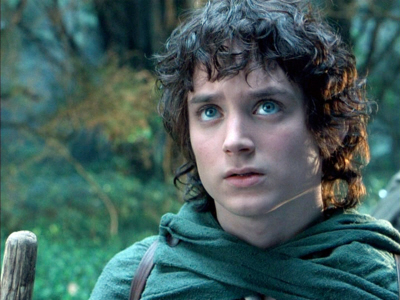 Some could quibble, and on this I shall quibble, that Galadriel and Celeborn were not, in fact, the rulers of Eregion, but it was Celebrimbor (a grandson of Fëanor). However, The Silmarillion mentions Celebrimbor as the greatest smith of Eregion, and not its king.
Some could quibble, and on this I shall quibble, that Galadriel and Celeborn were not, in fact, the rulers of Eregion, but it was Celebrimbor (a grandson of Fëanor). However, The Silmarillion mentions Celebrimbor as the greatest smith of Eregion, and not its king.
The vast majority of the rest of Middle-earth is not so lucky as Galadriel and Celeborn. Sauron conquers most of the kingdoms of men (thanks, in large part, to judicious use of the nine rings he uses to bring their kings under his sway), he destroys most of Eregion, and things are going pretty well for him. So well, in fact, he leaves off Middle-earth for a bit so he can destroy the greatest kingdom of men (Númenor), where he accidentally drowns along with everyone else. He comes back, of course, and begins consolidating his power in Middle-earth, and is about to destroy that whole ‘last alliance of men and elves’ thing and he makes one little mistake and a thousand years later some damn hairy-footed hobbit holds his destiny in his grubby sticky fingers.
By the time of Fellowship of the Ring, when Frodo and company finally get to Lothlorien, Galadriel’s set herself up pretty well. She’s kind of repeated (or maybe stolen?) Melian’s ability to hide her entire realm, she’s got some magnificent trees (not quite the Trees of the Valinor, lesser but still impressive Mallorn trees from the undying west), she has a mirror that lets her see the future(s), oh and she has one of the three elven rings of power — a ring that enables control of time.
From The Fellowship of the Ring:
Frodo felt that he was in a timeless land that did not fade or change or fall into forgetfulness.
And where does this come from? According to Haldir, the chief guardsman: “You feel the power of the Lady of the Galadrim.”
Frodo looked and saw, still at some distance, a hill of many mighty trees, or a city of green towers: which it was he could not tell. Out of it, it seemed to him that the power and light came that held all the land in sway.
Interesting choice of words there: holding all the land in sway.
By the time we meet her in The Fellowship of the Ring, Galadriel has little use for kings and stewards and even ring-bearers; indeed her first words are to go right to the top and ask where Gandalf is —
“Now tell us where he is; for I much desired to speak with him again. But I cannot see him from afar, unless he comes within the fences of Lothlorien: a gray mist is about him, and the ways of his feet and of his mind are hidden from me.”
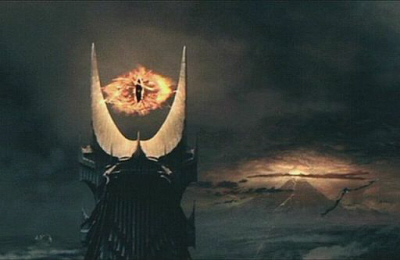 Not much is hidden from Galadriel. For example, she knows that Frodo has worn the ring three times already. This is an interesting contrast to the use of the Palantirs that Saruman has, and the just-shy of omnipotent power that Sauron is alluded to have (as Gollum warns later: “Hobbits must see, must try to understand. His Eye is all round, but it attends more to some places than to others. He can’t see everything all at once, not yet.”)
Not much is hidden from Galadriel. For example, she knows that Frodo has worn the ring three times already. This is an interesting contrast to the use of the Palantirs that Saruman has, and the just-shy of omnipotent power that Sauron is alluded to have (as Gollum warns later: “Hobbits must see, must try to understand. His Eye is all round, but it attends more to some places than to others. He can’t see everything all at once, not yet.”)
She manages to sum up most of her life in Middle Earth via a quick introduction to her husband:
For the Lord of the Galadrim is accounted the wisest of Elves of Middle-Earth, and a giver of gifts beyond the power of kings. He has dwelt in the West since the days of dawn, and I have dwelt with him years uncounted; for ere the fall of Norgothrond or Gondolin I passed over the mountains and together through ages of the world we have fought the long defeat.
“The long defeat.” Quite a statement. Against the forces of Melkor and his successors? Against time? Against her thwarted desire?
Then there is some of her scheming revealed, and a bit of the history she has with Saruman:
“I it was who first summoned the White council. And if my designs had not gone amiss, it would have been governed by Gandalf the Grey, and then mayhap things would have gone otherwise. But even now there is hope left. I will not you counsel, saying do this, or do that. For not in doing or contriving, nor in choosing between this curse and another, can I avail; but only in knowing what was and is, and in part also what shall be.”
After this odd introduction, she tests each member of Frodo’s company.
She held them with her eyes, and in silence looked searchingly at each of them in turn. None save Legolas and Aragorn could long endure her glance.
Later, a bit of the nature of her test is revealed, and it has to do with seeing what is hidden. Sam Gamgee reports:
“If you want to know, I felt as if I hadn’t got nothing on, and I didn’t like it. She seemed to be looking inside me and asking me what I would do if she gave me the chance of flying back home to the Shire to a nice little hole with — with a bit of garden of my own.”
Again, there is a powerful parallel here to what Frodo later experiences of Sauron’s eye as he gets closer to Mordor:
The Eye: that horrible growing sense of a hostile will that strove with great power to pierce all shadows of cloud , and earth, and flesh, and to see you: to pin you under its deadly gaze, naked, immovable.
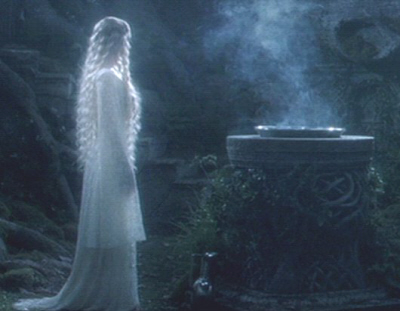 “Yes, yes,” I hear you say, “of course.” Communication and passing messages and breaking codes, all things Tolkien was very concerned with and all things that the mighty in his world share. But this is beyond guilt by association, far beyond.
“Yes, yes,” I hear you say, “of course.” Communication and passing messages and breaking codes, all things Tolkien was very concerned with and all things that the mighty in his world share. But this is beyond guilt by association, far beyond.
We come now to the mirror. In the movies they make this seem fairly straightforward, but of course it isn’t. Even Galadriel doesn’t talk a lot about what the mirror is. In fact, as far as magic goes, it seems pretty unreliable.
“Many things I can command the Mirror to reveal,” she answered, “and to some I can show what they desire to see. But the Mirror will also show things unbidden, and those are often stranger and more profitable than things we wish to behold. What you will see, if you leave the Mirror free to work, I cannot tell. For it shows things that were, and things that are, and things that yet may be. But which it is that he sees, even the wisest cannot always tell.”
When asked if he wants to look Frodo doesn’t answer and so she puts it to Sam. Interestingly, she says that just a while before he was saying he wanted to see Elf-magic. Again, little passes in Lothlorien that Galadriel does not know: she was not actually present when Sam spoke to Frodo of wanting to see elf-magic.
And what is this Elf-magic? By her own words:
“The Mirror shows many things, and not all have yet come to pass. Some never come to be, unless those that behold the visions turn aside from their path to prevent them. The mirror is dangerous as a guide of deeds.”
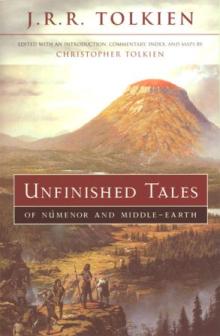 And speaking of dangerous guides of deeds, I suppose that now is as good a time as any to come clean on the fluid — some might even say mercurial — nature of some of JRRT’s histories that I use as reference. JRRT worked (and re-worked, and re-re-worked) on the history and the people and the stories of middle earth most of his life.
And speaking of dangerous guides of deeds, I suppose that now is as good a time as any to come clean on the fluid — some might even say mercurial — nature of some of JRRT’s histories that I use as reference. JRRT worked (and re-worked, and re-re-worked) on the history and the people and the stories of middle earth most of his life.
In point of fact, after the success of the The Hobbit JRRT did put together a draft version of The Silmarillion but it was not published. It was the rejection of that work that led him to delve into post-Hobbit events with The Lord of the Rings. JRRT died before he could re-compose The Silmarillion. The book we know as The Silmarillion was compiled/completed by JRRT’s son Christopher Tolkien based on the various (and sometimes contradictory) histories and notes in his father’s collections of notes and letters.
So many notes and letters and fragments that one book wasn’t enough to contain them and that’s where Unfinished Tales comes from.
Christopher Tolkien lays his cards on the table early on and guess which character he uses as an example?
The most important is the question of ‘consistency,’ best illustrated from the section entitled ‘The History of Galadriel and Celeborn.” This is an ‘Unfinished Tale’ in a larger sense: not a narrative that comes to an abrupt halt, as in ‘Of Tuor and his Coming to Gondolin’ nor a series of fragments, as in ‘Cirion and Eorl’, but a primary strand in the history of Middle-earth that never received a settled definition, let alone a final written form.
In fact, he lays his cards down again in the section on Galadriel and Celeborn:
There is no part of the history of Middle-earth more full of problems than the story of Galadriel and Celeborn, and it must be admitted that there are severe inconsistencies ‘embedded in the traditions’; or, to look at the matter from another point of view, that the role and importance of Galadriel only emerged slowly, and that her story underwent continual refashionings.
In many ways, one could consider that JRRT’s writing was, like Galadriel’s Mirror, full of things that were and are and might have been.
Anyway, where were we? Oh yes, the Mirror as a poor guide of deeds! Given this, Frodo asks if she would advise that he look — good play at a double-blind on his part. But her answer? Evasive!
I do not counsel you one way or the other. I am not a counselor. You may learn something, and whether what you see be fair or evil, that may be profitable, and yet it may not. Seeing is both good and perilous. Yet I think, Frodo that you have courage and wisdom enough for the venture, or I would not have brought you here. Do as you will!
By now, after all the bullet-points on the crap-sandwich listed at the start of this essay, Frodo is getting somewhat wise to the way things work among the mighty; he is starting to play their game. When he sees the eye of Sauron in the mirror?
He knew that it could not see him — not yet, not unless he willed it.
Ah, but while Frodo may have hidden himself from Sauron, he didn’t do such a good job hiding from Galadriel — who doesn’t seem to have much problem reading other people’s visions in her mirror.
“I know what it was that you last saw,” she said; “for it is also in my mind. – I say to you, Frodo, that even as I speak to you, I perceive the Dark Lord and know his mind, or all of his mind that concerns the Elves. And he gropes ever to see me and my thoughts. But still the door is closed!”
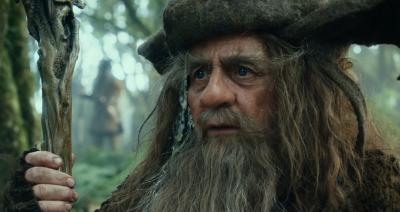 This is a thing with Tolkien, that power is often tied to communication, which is tied to being misled. The palantir’s show you the whole world and anywhere you have the will to look — unless someone of greater will clouds what you see (Saruman, check, Denathor, check, Pippin, check), the rings of power give you the ability to hold other people in sway and influence, save that you yourself are held in sway and influence by the bearer of the One Ring, and the bearer of the one ring is held in sway and influence by the will of Sauron that is within it.
This is a thing with Tolkien, that power is often tied to communication, which is tied to being misled. The palantir’s show you the whole world and anywhere you have the will to look — unless someone of greater will clouds what you see (Saruman, check, Denathor, check, Pippin, check), the rings of power give you the ability to hold other people in sway and influence, save that you yourself are held in sway and influence by the bearer of the One Ring, and the bearer of the one ring is held in sway and influence by the will of Sauron that is within it.
People! Even the birds don’t get out of this — the wizard Radagast teaches the speech of the birds to Saruman, who in turn corrupts it and uses birds for spies, and would have ended the whole book 200 pages earlier had he but realized that the birds obey Gwahir the lord of the Eagles and Gwahir is influenced by Gandalf.
And sitting outside of those networks of power and communication and influence and knowledge is the Mirror of Galadriel. It is unreliable, it is random, but most importantly, for her, it is a one-way mirror. It seems to be the one thing that is safe to look out of without worrying about someone looking into.
Frodo is forced to play the games of the mighty, and he’s getting a taste for it. Galadriel has done a good job of protecting herself from Sauron, she hasn’t don’t quite as good at protecting her secrets from him.
He sees, by the light Eärindil (the last of the Silmarils, now a star) the ring Nunya on Galadriel’s finger.
Caught ring-handed she comes clean:
It [her ring] cannot be hidden from the ring-bearer, and one who has seen the eye. Verily it is in the land of Lorien upon the finger of Galadriel that one of the three remains. This is Nunya, the Ring of Adamant, and I am its keeper.
The ring Nunya comes with some strings attached, of course, strings that lead to the Ring of Power, and to Sauron. But the elves have certainly made some advances for the thousand or so years that the One Ring has gone missing.
For if you fail we are laid bare to the enemy. Yet if you succeed, then our power is diminished and Lothlórien will fade, and the tides of Time will sweep it away.
So the elves, while they hate Sauron, are willing to use his tools (the rings) as long as it is safe to do so. They’ve all really hitched their wagons to his star.
Here we come to the heart of it, with Frodo saying:
“You are wise and fearless and fair, Lady Galadriel,” said Frodo. “I will give you the One Ring, if you ask for it. It is too great a matter for me.”
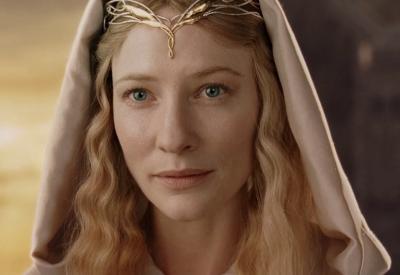 The iconic image of Frodo the wee innocent hobbit offering the ring? Bullshit! Frodo is far from innocent at this point, and he knows that Galadriel is far from innocent, too.
The iconic image of Frodo the wee innocent hobbit offering the ring? Bullshit! Frodo is far from innocent at this point, and he knows that Galadriel is far from innocent, too.
Long before this fateful meeting Frodo has ceased to be the naïve hobbit he once was. He is well versed in the ways of the mighty at this time, having rubbed elbows with kings (alive and dead) and future kings, and wizards, and Nazgul, and Bombadil, and Balrogs.
This really isn’t a matter for hobbits, it’s a matter for the elves, for them to take care of. And not just any of them, either, not the sixth or seventh generation types, like Elrond and Legolas (sorry, dudes), but a matter for the fourth generation who have been cloaked in power so long that they really know no other way.
Time passes strangely in Galadriel’s lands, and Frodo — who already has some knowledge of the elves from the various writings of his uncle Bilbo, has picked up quite a bit more of their history — and Galadriel’s history — in his stay.
How do I know? Because he has a lot of knowledge about the elves and their history later. Not long before things get real with Shelob, he and Sam have a pretty straightforward talk about just where they fit in the grand scheme of things. Sam, plain hobbit from the shire, knows quite a bit of the lore of the elves:
No, sir, of course not. Beren now, he never thought he was going to get that Silmaril from the Iron Crown in Thangorodrim, and yet he did, and that was a worse place and a blacker danger than ours. But that’s a long tale, of course, and goes on past the happiness and into grief and beyond it — and the Silmaril went on and come to Eärendil. And why, sir, I never thought of that before! We’ve got — you’ve got some of the light of it in that star-glass that the Lady gave you! Why, to think of it, we’re in the same tale still! It’s going on. Don’t the great tales ever have an end?
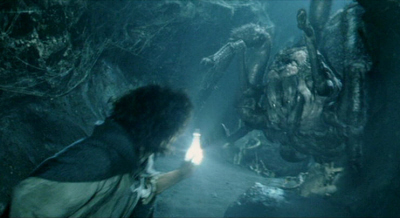 Sam’s a little slow on the uptake, I think. Frodo has been aware of this for quite some time, and I feel certain he is aware of it when he makes his offer to Galadriel.
Sam’s a little slow on the uptake, I think. Frodo has been aware of this for quite some time, and I feel certain he is aware of it when he makes his offer to Galadriel.
When he and Sam find themselves abandoned by Gollum in the darkness of Cirith Ungol and Frodo first uses the phial that Galadriel gave him, we get more confirmation that he knows quite a bit about the light’s ultimate source:
For a moment it glimmered faint as a rising star struggling in heavy earthward mists and then as its power waxed, and hope grew in Frodo’s mind, it began to burn, and kindled to a silver flame, a minute heart of dazzling light, as though Eärendil had himself come down from the high sunset paths with the last Silmaril upon his brow.
You want more? I have more. The light only gives them a short victory and not long after, when he and Sam find themselves trapped in Cirith Ungol by Shelob’s webs, he says:
Let us see what Sting can do. It is an elven-blade. There were webs of horror in the dark ravines of Beleriand where it was forged.
Quite a bit of Second Age history for such a small blade! And, as will be important later, bear in mind that the webs of horror he speaks of were in a set of mountains called Ered Gorgoroth (the Mountains of Terror), which was filled with the descendants of Ungoliant and — ready for it? — bordered the elvish kingdom of Doriath to its north. Doriath being the kingdom where Galadriel and Celeborn lived.
They have this knowledge; the knowledge of the history of the Silamrils — and the thus the knowledge of the history of the elves, and thence the history of Galadriel. And they make no mention to it pre-entry into Lothlorien, it’s all after they leave. So In Lothlorien, in that strange unaccountable time that marks that land, they must learn these things, or tie together tales from Bilbo and Elrond and perhaps Aragorn.
Once one is aware that he has this knowledge, Frodo’s offer of the ring to Galadriel comes across in a very different light. Not so much that carrying the ring is “too great a matter for me” as much as it is “you’ve done this kind of thing before” or even “you started this, you fix it.” This whole ring thing really is all fallout from that Silmaril thing, after all.
And fix it she will. Frodo knows that, too. He knows that she doesn’t give a damn about men or dwarves or hobbits, but her hatred for Sauron and his orcs and minions? That is a well that has no bottom. She will clean house on Middle-earth. She even admits it herself. Note the exchange between herself and Sam made shortly after she turns Frodo down:
“I think my master was right. I wish you’d take his Ring. You’d put things to rights. You’d stop them digging up the gaffer and turning him adrift. You’d make some folk pay for their dirty work.”
“I would,” she said. “That is how it would begin. But it would not stop with that, alas!”
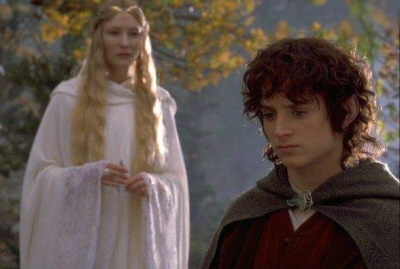 I find it fascinating that, but for the corruption that the ring would bring, she would be eager to make some folks pay.
I find it fascinating that, but for the corruption that the ring would bring, she would be eager to make some folks pay.
Again, Sam is a few steps behind Frodo. Frodo, I think, is well aware that she may go bad due to the influence of the ring, but so what? She doesn’t care about men or dwarves or hobbits. She’ll go bad, and do what? Relentlessly hunt every orc and goblin in the world? Find and destroy the remaining Balrogs? At the outside maybe she’ll go back to the West to settle some hash there with her Noldorian kin who couldn’t hack living under the vow/curse.
We can also go to her refusal itself. How does she react to Frodo’s offer? She jokes about it… but is it really a joke?
“Gently are you revenged for my testing of your heart at our first meeting. You begin to see with a keen eye. I do not deny that my heart has greatly desired to ask what you offer. For many long years I had pondered what I might do, should the Great Ring come into my hands, and behold! it was brought within my grasp. The evil that was devised long ago works on in many ways, whether Sauron himself stands or falls. Would not that have been a noble deed to set the credit of his Ring, if I had taken it by force or fear from my guest?
“And now at last it comes. You will give me the Ring freely! In place of the Dark Lord you will set up a Queen. And I shall not be dark, but beautiful and terrible as the Morning and the Night! Fair as the Sea and the sun and the Snow upon the Mountain! Dreadful as the Storm and the lighting! Stronger than the foundations of the earth. All shall love me and despair!”
Loved like the Silmarils which are forever out of her reach? Or the ships of the Teleri whose like will never grace the seas again? Or perhaps loved like the lost cities of Gondolin and Doriath? Despaired like regret of living for two ages with your mistakes? Mistakes such as not being honest enough soon enough with King Thingol and Queen Melian? Mistakes such as allowing Sauron into your realm? Such as using Sauron’s tools for your own ends?
And speaking of rings, she even puts a little of her ring mojo in it –
She stood before Frodo seeming now tall beyond measurement, and beautiful beyond enduring, terrible and worshipful. Then she let her hand fall, and the light faded, and suddenly she laughed again, and lo! She was shrunken: a slender elf-woman, clad in simple white, whose gentle voice was soft and sad.
“I pass the test,” she said, “I will diminish, and go into the West, and remain Galadriel.”
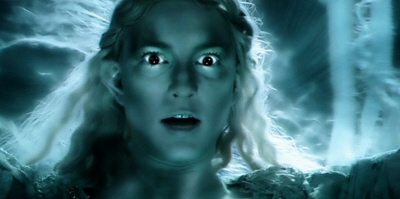 Such a word: ‘diminish.’ For all her First Age power, the only tool that can really and truly bring her to the level she desires, to quell the yearning “to see the wide unguarded lands and to rule there a realm of her own will,” is the One Ring.
Such a word: ‘diminish.’ For all her First Age power, the only tool that can really and truly bring her to the level she desires, to quell the yearning “to see the wide unguarded lands and to rule there a realm of her own will,” is the One Ring.
Magic mirrors are all well and good, but the price she’s paid for the safety of Lothlorien is that she is trapped there. And one could argue that given the control she exerts in Lothlorien, and of all her scheming and planning she is very near to being a Dark Queen already. It is only when confronted with the ultimate power of Sauron’s ring that she balks and she perhaps truly sees herself as she really is and backs away from a lifetime — an elvish lifetime — of pride and ambition. And even then she wants the temptation out of her grasp as soon as possible: the next day.
“In the morning you must depart, for now we have chosen and the tides of fate are flowing.”
Some of you may be reading this, sucking on your pipes, sipping your pints, and thinking this is a joke, an elaborate hoax that I’m perpetrating. After all, Galadriel walks around barefoot in her garden! She lets Frodo and Sam look into her magic mirror! She gives the company of the ring gifts!
Diminishing is one thing, but Queen Galadriel isn’t going to lift one dainty foot to the west until she has put in place the tools to tie up some loose ends.
Let us look at these “gifts” she gives. She avenges herself against every one of her remaining enemies with those gifts, using the company of the ring as mules to transport her vengeance!
Exhibit A: Shelob, last and greatest of the spawn of Ungoliant who helped Melkor steal the Silmarils? DEAD! Blinded by the light of the last Silmaril, captured in the phial (the light of Eärendil) and impaled on an elvish blade. One could even argue that Galadriel takes a more direct hand in the affair. Her very name is a war-cry:
“Galadriel!” he called, and gathering his courage he lifted up the Phial once more. […] Then Frodo’s heart flamed within him, and without thinking what he did, whether it was folly or despair or courage, he took the Phial in his left hand, and with his right hand drew his sword. Sting flashed out, and the sharp elven-blade sparkled in the silver light, but at its edges a blue fire flicked.
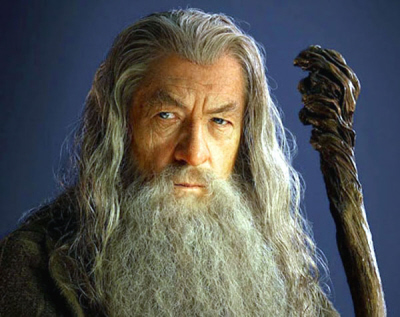 Exhibit B: Borimir, who dared argue that the company of the ring should not go to Lothlórien? DEAD! Way to use your magic mirror to help out, there, Galadriel.
Exhibit B: Borimir, who dared argue that the company of the ring should not go to Lothlórien? DEAD! Way to use your magic mirror to help out, there, Galadriel.
Exhibit C: Gandalf. ALIVE! When Gandalf is lying upon the ruin of Zirakzigil, the peak of the mountain where he defeats the Balrog, recently returned from the dead and pretty much helpless, Galadriel sends Gwahir to fetch him and bring him to Lothlorien to heal up. So, one could say that Galadriel is responsible for Gandalf the White. Who, in turn gets the ducks in a row to save Rohan (and screwing over Saruman) and from there, you know, saving Gondor and all that.
Exhibit D: Nameless monster bird/steed of equally nameless Nazgul en route from Mordor to Isengard: DEAD! Shot by Legolas with an arrow fired through the bow Galadriel gave him. Thus keeping said nameless Nazgul from being present during the later fight with the Uruk Hai.
Exhibit E: Sauron. DEAD! Clever use of the ropes and cloaks that Galadriel gives to Frodo and Sam play no small role in his destruction.
Exhibit F: Saruman, who Galadriel has always inexplicably hated? DEAD — no, not just dead but ERASED from Middle Earth.
As I’ve read The Lord of the Rings through the years, I’ve often wondered just what the deal between Saruman and Galadriel was. I think I come a little closer to the heart of the issue. Way back at the start of this I mentioned the god Aulë.
In the beginning […] the fashioning of all lands was his labor. He is a smith and a master of all crafts, and he delights in the works of skill […] The Noldor learned most of him, and he was ever their friend. Melkor was jealous of him, for Aulë was most like himself in thought and in powers […] and Both, also, desired to make things of their own that should be new and unthought by others, and delighted in the praise of their skill.
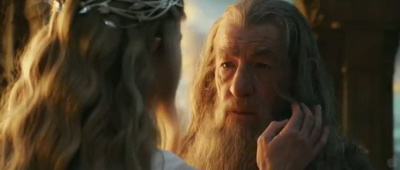 It is Aulë who teaches the Noldor so many things, and that teaching plays a large part in the Fëanor’s creation of the Silmarils, and that leads to a lot of trouble.
It is Aulë who teaches the Noldor so many things, and that teaching plays a large part in the Fëanor’s creation of the Silmarils, and that leads to a lot of trouble.
Further, working under Aulë in the making of the world are two Maia — Saruman and Sauron. They, and many others, suffer from the fallout of both their need to create and their creations. Melkor makes many horrible creatures and things (orcs included) and there is trouble; Fëanor makes the Silmarils, and there is trouble; Fëanor’s great-grandson makes the rings of power, and there is trouble; Sauron makes the ring, and there is trouble, Saruman makes the Uruk Hai, and there is trouble.
I discuss this at length in another essay, but due to their shared background it is almost inevitable that Saruman’s answer to the Sauron problem is to become Sauron. And I think that the only being who is hard-nosed enough to see it (or has a magic future-showing mirror that shows it) is Galadriel.
Gandalf is fooled up until he is captured in Orthanc. Treebeard is also duped until it is almost too late. But Galadriel… well, in thwarting Saruman she can also tie up some emotional loose-ends.
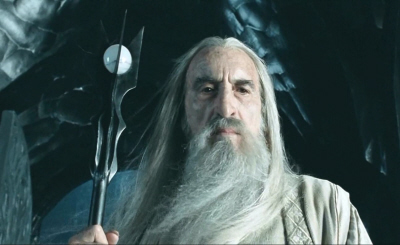 Saruman represents, in a small way (but it always starts small) so many of the hard lessons she’s learned in her long life. One of those lessons is the time that the Valar let a remorseful and fair-seeming Melkor into their midst, or the time somebody let a fair-seeming Maia who used to work for Aulë into the realm of Eregion and then the whole Ring and then the fire and the foom and the killing. Fool me once and all that.
Saruman represents, in a small way (but it always starts small) so many of the hard lessons she’s learned in her long life. One of those lessons is the time that the Valar let a remorseful and fair-seeming Melkor into their midst, or the time somebody let a fair-seeming Maia who used to work for Aulë into the realm of Eregion and then the whole Ring and then the fire and the foom and the killing. Fool me once and all that.
But just as she uses the Elvish ring Nunya, knowing that it is tied to the One Ring, and to Sauron, she walks that same line with Saruman, using him on the White Council and running the risk that he’ll grow too strong too fast, or worse that he’ll find the One Ring.
The deeps of time are never far from Galadriel, and while she can’t bring the two Trees of Valinor back to life, or bring the lost lands of the First Age of Middle-earth up from under the sea, she can replace the ruined party tree of the Shire with a Mallorn, and repair the damage Saruman did to the lands of the hobbits.
For his part, Saruman is as little swayed by Galdriel’s act as she is of his. As things are winding down in Return of the King when the hobbits and Gandalf and Galadriel and Celeborn meet Saruman on the road Saruman comes out swinging:
As for the Lady here, I do not trust her: she always hated me and schemed for your [Gandalf’s] part. I do not doubt that she has brought you this way to have the pleasure of gloating over my poverty.
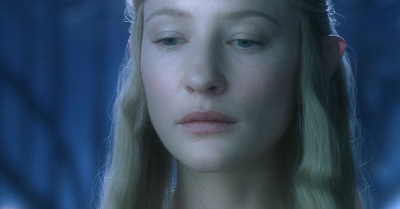 And she can’t undo Saruman’s past decisions and his mistakes, but she can make an attempt to get him to step away from the path he’s set himself on, the path of turning his back on the undying west and pursuing a realm to rule as he willed.
And she can’t undo Saruman’s past decisions and his mistakes, but she can make an attempt to get him to step away from the path he’s set himself on, the path of turning his back on the undying west and pursuing a realm to rule as he willed.
‘Saruman,’ said Galadriel, ‘we have other errands and other cares that seem to us more urgent than hunting for you. Say rather that you are overtaken by good fortune; for now you have a last chance.’
But then Saruman, although deprived of his Voice, has quite the wits as well, and again knows somewhat about who he is dealing with:
“All my hopes are ruined, but I would not share yours. If you have any.’
For a moment his eyes kindled. “Go!” he said. “I did not spend long study on these matters for naught. You have doomed yourselves, and you know it. And it will afford me some comfort as I wander to think that you pulled down your own house when you destroyed mine. And now, what ship will bear you back across so wide a sea?” he mocked. “It will be a gray ship and full of ghosts.”
A powerful rejoinder, and a reminder of her earliest history and the history of her people in the stealing of the boats of the Teleri and kinslaying. A kind of guilt that Galadriel herself referenced saying (singing, really) the same question at the parting of Frodo’s company from Lothlórien.
But if of ships I now should sing, what ship would come to me,
What ship would bear me ever back across so wide a Sea?
Diminishing is one thing, and fighting the long defeat is one thing, but for a being like Galadriel, not extending her power — while she has it — to prevent or at least delay the cycle of doom begun in her early days, that’s another thing altogether.
Adrian Simmons is an editor for Heroic Fantasy Quarterly. His most recent article for us was Fools in the Hotzone: Saruman as the Bold but Incompetent Firefighter.
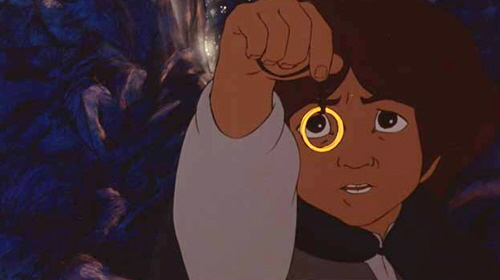
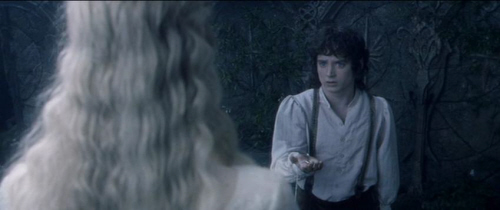
A hugely enjoyable article for a Tuesday morning. Thanks.
Excellent post.
Thank you for sharing this, Adrian. Interesting thesis, this angle on Galadriel’s motives!
Oddly enough a couple days ago. i went back to reread your post on Saruman and the other wizards. That post was from November 2012.
Thanks to everyone for reading this. A small idea ended up turning into a big essay!
Glenn, glad you liked the Saruman post… 2012 seems like an age ago! Although the new Hobbit movie is far from canon, Saruman seems to still be fighting the good fight in them, although he does give a few hints that he’s got plans of his own.
Nice, well-thought-out article! A few minor quibbles you may consider updating:
Morghul > Morgul
Noldorian > Noldorin
Lost Tales (“It was in Eregion …”) > The Silmarillion (Of the Rings of Power and the Third Age)
Galadrim > Galadhrim (1st edition > 2nd edition spelling)
Eärindil > Eärendil
Nunya > Nenya
Borimir > Boromir
Gwahir > Gwaihir
Galdriel (once) > Galadriel
These don’t have any detriment on the quality of the article; I just wanted to point them out in case you felt like Ctrl+F’ing to fix them.